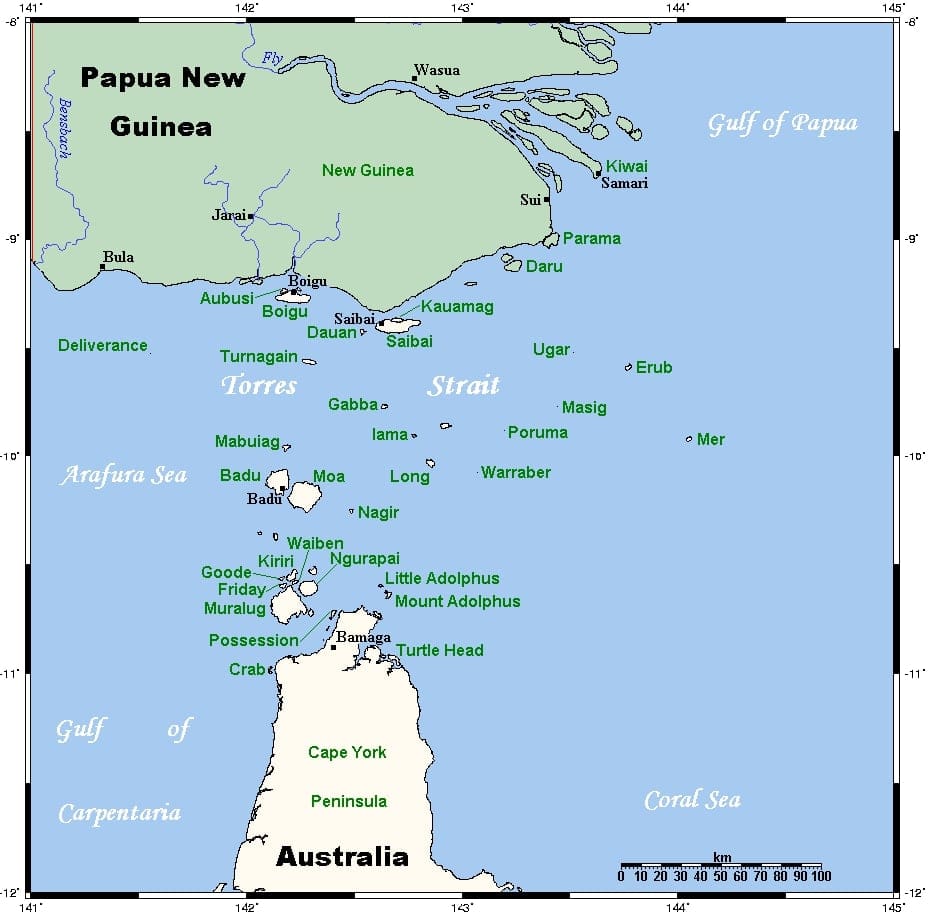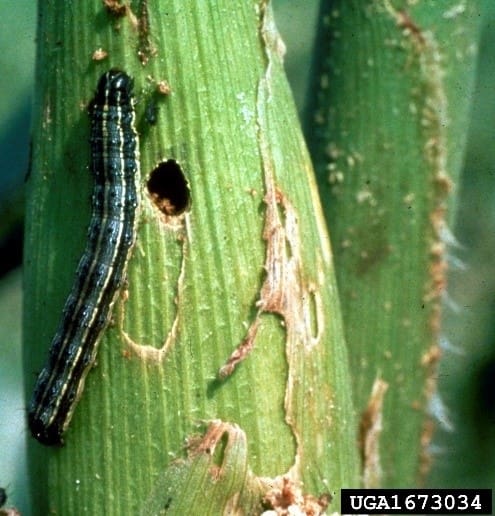THE exotic pest fall armyworm (Spodoptera frugiperda) has been detected for the first time in Australia, on the northern Torres Strait islands of Saibai and Erub.
It was detected in a network of surveillance traps managed by the Australian Department of Agriculture, Water and Environment’s Northern Australia Quarantine Strategy.
Currently there is no evidence fall armyworm has established in Torres Strait.
There have been no detections of fall armyworm on the mainland of Australia or Tasmania.

Click on map to enlarge. Source: Wikipedia
Fall armyworm larvae is known to eat and destroy more than 350 plant species, including maize, cotton, rice, sorghum, sugarcane, wheat and many vegetable and fruit crops—and has caused significant economic losses overseas.

Fall army worm attacking maize.
Without control measures, destruction of crops can happen almost overnight when population levels are high.
The pest originates from tropical and subtropical regions of the Americas. Since 2016, it has rapidly spread to and throughout Africa, the Indian subcontinent, China and Southeast Asia.
The Queensland Department of Agriculture and Fisheries is working with the Australian Government, and with industry groups and communities, to assess the distribution, host range and threat of the pest, and develop a response strategy.
The response strategy will help determine the current distribution of fall armyworm in Queensland, while seeking to contain the pest through regulatory measures.
The islands of the Torres Strait, while part of Australia, hold a special biosecurity designation.
Under the Biosecurity Act 2015, no plant or animal material or soil can be moved from the islands to the Australian mainland without meeting biosecurity regulations.
This is in recognition of the additional risk posed by proximity to Papua New Guinea and the relative freedom of movement of Indigenous people between Papua New Guinea and the Torres Strait Protected Zone.
Any operational activity required on traditionally owned lands in Queensland will be undertaken only after consultation with traditional owners and relevant representative groups.
Growers should have on-farm biosecurity measures to protect their crops from pests and diseases.
Source Biosecurity Queensland
More information: farmbiosecurity.com.au
Report suspect detections of FAW moths and larvae to the national Exotic Plant Pest Hotline on 1800 084 881 or to Biosecurity Queensland on 13 25 23.

HAVE YOUR SAY